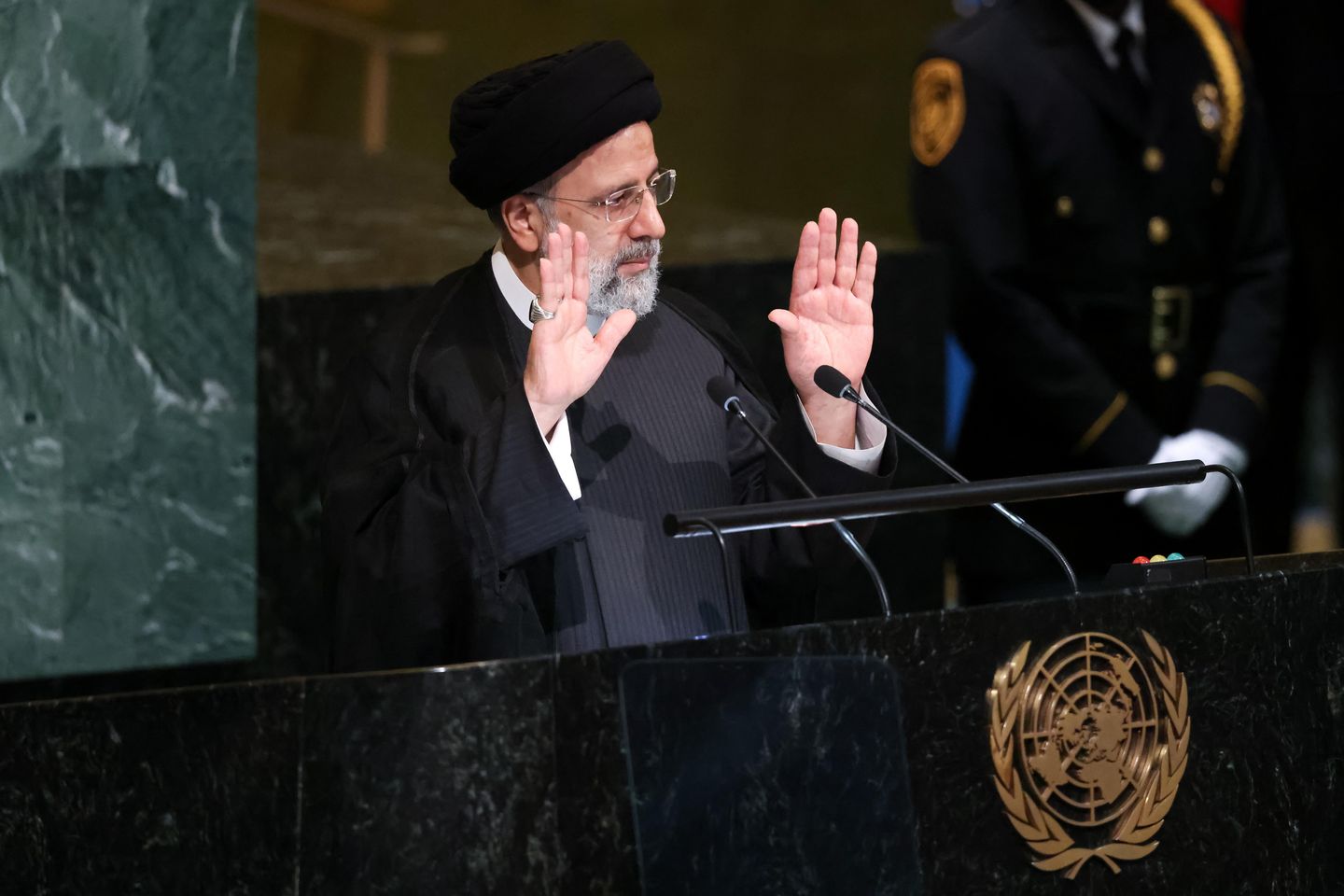

President Biden and Iranian President Ebrahim Raisi said in separate speeches to the U.N. General Assembly Wednesday that they want to reach a new nuclear deal, but their remarks underscored how difficult striking an agreement will be.
Mr. Raisi told the United Nations General Assembly that Tehran is “not seeking to build or obtain nuclear weapons,” and accused America of “trampling” the 2015 nuclear deal Mr. Biden has spent the past two years trying to revive with the Islamic republic.
Just hours later, Mr. Biden told the world body that Iran cannot be allowed to acquire a nuclear weapon, while underscoring he still hopes to save the tattered multinational deal that was negotiated under President Obama and repudiated three years later by President Trump.
“The United States is clear: We will not allow Iran to acquire a nuclear weapon. Diplomacy is the best way to achieve this outcome,” Mr. Biden said in a speech that focused heavily on the Ukraine-Russia war and other matters.
Mr. Raisi, an Islamist hardliner whom Republican lawmakers sought to block from attending the General Assembly, seized on his moment in the spotlight before world leaders to push the theory that the Islamic State terror group (ISIS) was “created by the United States.”
The claims in Mr. Raisi‘s speaking debut before the world body come at a moment of heightened friction between Tehran and Washington as talks to revive the nuclear deal have stalled over recent weeks. The Iranian leader in his remarks insisted Tehran still wants a nuclear deal — if the U.S. offers suitable guarantees — and is open to “extensive relations with all our neighbors,” amid tentative diplomatic feelers recently to Saudi Arabia and other Arab rivals in the region.
As Mr. Raisi spoke Wednesday, days of mass protests against his government continued to unfold inside Iran, where there are now reports of widespread internet outages, including a loss of access to Instagram and WhatsApp, two of the last Western social media platforms available in the country.
Iran has been roiled by nationwide protests over the death of 22-year-old Mahsa Amini, who was detained for allegedly wearing the mandatory Islamic headscarf too loosely. Demonstrators have clashed with police and called for the downfall of the Islamic Republic itself.
Negotiations in Vienna over a new nuclear deal are reaching a make-or-break point, European diplomats say. Mr. Raisi has already ruled out any direct talks with Mr. Biden as the 2015 agreement hangs by a thread.
In 2018, Mr. Trump pulled the United States out of the deal and reimposed sanctions on Iran’s economy. He said Tehran violated the spirit of the agreement by continuing to back militant groups across the Middle East and by testing ballistic missiles in violation of U.N. Security Council resolutions.
The Biden administration and Iranian officials had recently appeared close to a new deal, trading written responses on the finer points of a road map for how the U.S. would lift certain Trump-era sanctions in exchange for a commitment from Iran to restrict its rapidly advancing nuclear program.
But U.S. officials accuse Iran of dragging out talks ahead of the U.N. gathering. Mr. Raisi warned in early September that any road map to restore the deal would require international inspectors to end their investigation of man-made uranium particles found at undeclared nuclear sites in the country. Iran is also demanding guarantees that the U.S. won’t repudiate the deal again in the future the way Mr. Trump did — a guarantee that the Biden administration says it cannot give.
“Our wish is only one thing: observance of commitments,” Mr. Raisi said at one point.
In his speech Wednesday, the Iranian president claimed Tehran signed the 2015 agreement with “goodwill” and “in a first phase did live up to all of her commitments without any exceptions.”
“But the result of that was a trampling upon by America on that agreement,” he said.
U.S.-Iranian relations hit a lot point in early 2020 when a U.S. drone strike killed Gen. Qassem Soleimani, the head of the Iranian military’s elite Quds force, which oversees relations between Tehran and proxy militants. The deputy commander of Iran-backed Shiite militias in Iraq was also killed in the strike, which was carried out near the Iraqi capital of Baghdad.
Mr. Raisi on Wednesday referred to Soleimani as a “beloved late martyr,” and claimed that he died as part of a battle that Iran, a predominantly Shiite Muslim nation. was waging against ISIS, a Sunni Muslim extremist group.
The Times of Israel, meanwhile, noted that Mr. Raisi separately referred to Israel as a “savage power” in his address to the General Assembly, during which Israel’s envoy to the United Nations Gilad Erdan walked out of the assembly hall in protest. Mr. Raisi complained at one point that the world focused on Iran‘s covert nuclear programs while ignoring others — a clear reference to Israel’s extensive but unacknowledged nuclear arsenal.
Mr. Raisi has previously cast doubt on the Holocaust and the Times of Israel cited a statement Wednesday by the Israeli mission to the United States that said Mr. Erdan left a photograph of his grandmother, who survived the Holocaust, in his seat upon walking out on the Iranian leader.
This article is based in part on wire service reports.
